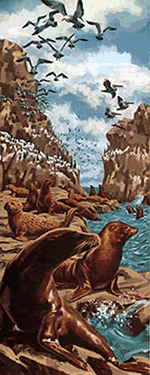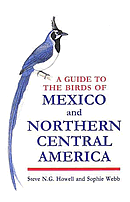FAQs - FREQUENTLY ASKED QUESTIONS
QUESTIONS ANSWERED
I FOUND A BABY BIRD,
WHAT SHOULD I DO?
If it appears that the baby fell out of a nest, then simply
locate the nest nearby and carefully place the bird back in the
nest. Despite presistent fallacies, the parents cannot smell your
odor on the baby bird, and will usually accept the young back into
the nest. Young birds often fall from nests after wind storms, when
the nesting sites are disturbed by construction, predators, or children,
or when an older sibling kicks them out of the nest. If you cannot
locate a nest, keep the bird in a suitable warm container, and contact
your local SPCA or a certified wildlife care facility immediately
(see contact list below).
I FOUND AN INJURED
BIRD, WHAT SHOULD I DO?
If a bird hit a window and appears stunned but otherwise uninjured,
it is important to place the bird into a warm, darkened box or similar
container, and release the bird when it comes back to its senses.
Leaving a bird in such a condition outside makes it easy prey for
cats, dogs, or other predators. If the animal appears to have an
injury, or if you find an animal injured in any other way, contact
your local SPCA or a certified wildlife care facility immediately
(see contact list below).
Wildcare
(San Rafael)
Lindsay
Wildlife Center (Walnut Creek)
Peninsula
Humane Society (San Mateo)
International
Bird Rescue and Research Center (Fairfield)
List
of California Wildlife Care Facilities
Wildlife
Rehabilitation Information Directory
I FOUND A MARINE MAMMAL ON
THE BEACH, WHAT SHOULD I DO
Please refer to our Marine
Mammal Stranding Network page for instructions on how to report
a stranded marine mammal.
CAN I COLLECT
SPECIMENS?
Native birds and mammals living within the State of California
are protected by either state, federal, or international laws, even
when they are dead. It is illegal for private citizens to own most
native birds or mammals, either in whole or in part (including skulls,
bones, antlers, and even feathers), except under terms of special
permits or by exemptions under hunting laws and licences. Therefore,
collecting most bird or mammal specimens, either alive or dead,
is illegal without proper permits and licenses. Educational institutions
need to get permits from the California Department of Fish &
Game to be in ownership of bird or mammal material used in educational
programs. Fines and penalties for violating such regulations can
amount to thousands of dollars, and even the possibility of jail
time, depending on the severity of the infraction.
YIKES!
I HAVE SKUNKS/OPOSSUMS/RACOONS IN MY YARD
In urban and suburban areas, these animals have become habituated
to humans because we provide food an housing for them. If these
animals become a nusance, there are several steps you can take to
make them feel unwelcome, and lessen the likelihood that they'll
stick around:
1) Feed all pets indoors. These animals often raid your pet's
food bowls at night and learn that your home is an easy meal for
them.
2) Keep all trash cans upright and with tight-fitting (or
locking) lids. These are crafty animals that have learned to associate
trash cans with food, and frequently raid your trash area for food.
Keeping your trash cans critterproof will keep your place tidy and
keep unwanted animals away.
3) Cover all basements, decks, and crawlspaces cut off from
these animals. Use of plywood, bricks, or wire mesh should be used
to block any enties into basements, attics, crawlspaces, or under
foundations where these animals may set up home and raise a family.
4) If skunks, opossums, or racoons become a persistent problem,
call your local Animal control officers.
5) Check these sites for additional information:
Living With Local
Wildlife
Protecting Your Home from Opossums,
Skunks
& Racoons
Living
With Skunks & Racoons
Wildlife
Damage Control
THOSE DAMNED BIRDS
KEEP SINGING, AND IT'S DRIVING ME NUTS!
This was an actual quote I got from an enraged homeowner about
birds singing in his yard. Some birds, like the Northern Mockingbird,
may sing night and day during the breeding season, and other birds,
like crows and jays, may raise a ruckus from time to time. However,
all native birds are protected by law, and there's little you or
any private or government agency can do about it. For most people,
the songs of birds, even if too loud at times, are joyous reminders
of the diversity of nature in their community. So if a bird is making
noises that you don't appreciate, live with it.
DONATIONS
People often ask if they can make donations to the Ornithology
& Mammalogy Department, and the answer is YES! Donations are
broken into two different categories:
1) Donation of Specimens - People often have potential
specimens that they own and would like to give to a qualified institution.
We are particularly interested in study skins, eggs, skulls &
skeletons of animals that have basic scientific data (particularly
the locality & date collected). These may have come from old
private collections, or from unwanted teaching collections in schools
or museums. Often, people have old hunting trophies that they want
to donate, but these are often of little value to us if there is
no scientific information with the specimens. However, material
we don't need for our research collections is usually given to other
institutions for educational programs. If you have possible material
to donate, please contact the Collections Manager.
Often, accepted donations can be used as a tax-deduction.
2) Monetary Donations - Donations of funds to the Department
of Ornithology & Mammalogy are always appreciated, and are tax-deductable.
Such contributions are used to promote our department's collections
and research programs. The Luis
Baptista Memorial Fund was recently established to promote research
in bird biology that Dr. Luis Baptista began. We also have other
donation programs, and are always in need of a sponsor for our unfilled
Chair of Mammalogy, which has been vacant since the early 1990's.
For more information about donations, please contact the Collections
Manager or the Development
Office for additional information.


